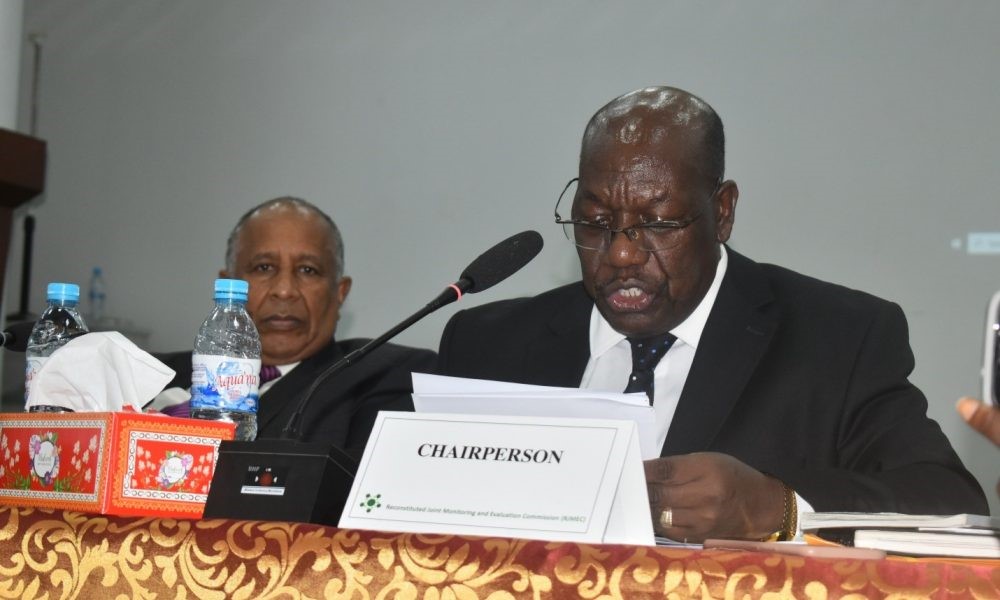By Charles K Mark
The Reconstituted Joint Monitoring and Evaluation Commission (RJMEC) has identified several recurring challenges that continue to severely slow down implementation of the Revitalized Agreement.
In its quarterly report seen by this outlet, the peace monitoring body feared that the impediments needed urgent attention as the country gears towards elections.
Interim Chairperson of R-JMEC, Rtd. Gen. Charles Tai Gutai, mentioned among the hiccups such as lack of adequate funding for the agreement institutions and mechanisms.
He also discovered trust deficits among the parties, capacity gaps within the various implementation mechanisms; and persistent levels of inter-communal violence in some of the states as some of the impediments.
R-JMEC also warned about insecurity caused by military defections and holdout groups, severe flooding, the influx of returnees and refugees fleeing conflict in neighboring Sudan.
Gutai recommended that the R-TGoNU discourage defections and promote the protection of civilians, as per articles 2.1.8 and 2.1.10 of the R-ARCSS.
“Continue to adhere to the minimum 35 percent women’s representation in appointments to the various commissions, agreements, institutions, and mechanisms,” he urged.
The chair further called for collegial cooperation in a manner that will enable them to present a unified plan for elections and avoid unilateral pronouncements that are contrary to the letter and spirit of the agreement.
The Peace Monitoring Mechanism also advised the principals to dialogue among themselves and agree on the practical steps to fast-track the implementation of the Roadmap to ensure the timely conduct of elections.
“Demonstrate commitment to the elections by providing the funding required to hold elections; completing the permanent constitution-making process; and iii) completing the unification of forces,” Gutai outlined.
Through the quarterly report, R-JMEC urged the R-TGoNU to act on the recommendations of the Judicial Reform Committee (JRC) once received in order to ensure that the judicial reforms complement the permanent constitution-making process and preparations for the conduct of elections.
“Complete the reconstitution and restructuring of the transitional institutions and mechanisms outlined in Article 1.19.1 of the R-ARCSS.” the peace monitors urged.
Among others, the Commission also calls for civic education, fast-tracking of the permanent constitution-making process, and promoting political and civic space to allow citizens to exercise their democratic rights.
South Korea is counting down to 10 months to hold its first ever national presidential election, anticipated to take place in December this year.




